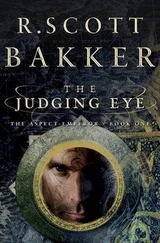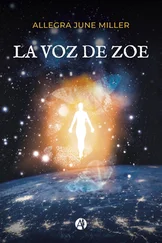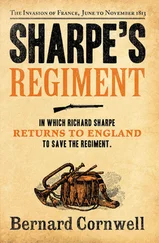When people start to board the train, she gets on too and sits facing the direction of travel. The man with the bottle of cola gets on after her and sits down opposite her. He puts his rucksack on the seat next to him and crosses his arms. He jiggles his feet restlessly. She gets a book out of her small overnight bag and lays it on her lap. First leave the station, then open it. When the train starts to slow down for Den Helder South, she looks at the sky. There’ll be light rain before it gets dark — she heard Jan Visser say that this afternoon. The man is still sitting with his arms crossed, staring out the window. Maybe he doesn’t have a book. It’s so hot in the train that she can’t imagine sitting there with crossed arms like that for long. He has reddish hair, she finds him attractive. There is a group of raucous youths across the aisle, some drinking beer out of cans. Saturday night. She tries to concentrate on her book.
In Anna Paulowna she checks her watch: 10.14, right on time. The red-headed man drinks the second cola and stuffs the bottle into the rubbish bin under the small table. The train shudders as it pulls out of the station, the whistling noise rises and then falls in pitch, then rises and falls again. The jerking doesn’t decrease as the train gains speed, it gets worse. After a few minutes the train stops. ‘Not again!’ shouts one of the youths. ‘Turn on the boosters!’ shouts another.
After the train has stood still for about five minutes, the youths stop talking. There haven’t been any announcements. She reads, and checks her watch every now and then. A slight delay is not a problem, she’s not being picked up in Schagen, her sister lives near the station. Suddenly the man bursts into action. He takes his rucksack, puts it on his lap, unzips it and, after rummaging around in it, pulls out a white envelope. She pretends to carry on reading, but watches through her eyelashes as he tears it open. A piece of cardboard emerges, which the man lays on the table in front of the window. He’s sitting there with a photograph in one hand, a very slight shadow of the image showing through the back. The raucous boys stand up and walk to the vestibule. She hears banging and yelling, as if they’re trying to force the doors. Then the sound of feet landing on gravel. She looks out the window — nothing. They must be walking in the direction of Schagen. The man is staring at the photograph, sniffing a little. Then he lays it on the piece of cardboard, stands up and walks out to the vestibule as well. Two girls follow him and stop in the carriage doorway.
‘Did some people just jump down from the train?’ one of the girls asks.
‘Yep,’ she hears the man say. From where she’s sitting, she can’t see him any more.
‘Is that allowed?’
No answer. A little later the girls walk past the window on their way back to Anna Paulowna. She didn’t hear them jump down from the train. Someone could make an announcement now, she thinks. Where’s the guard? She’s never experienced anything like it; a slight rebelliousness bubbles up inside her. She checks her watch again. It’s 10.30 already, and they were supposed to arrive in Schagen at 10.20. It is still quite light on her side of the train, towards the sea; in the east the twilight has already set in. The man comes back just as an announcement is finally made. ‘ H.C., door lock, carriage thirteen-eight. ’ That’s all, nothing about why the train’s stopped, nothing about the rest of their journey. The man hesitates, then picks up his rucksack.
‘Wait,’ she says.
He’s not listening. To her surprise she sees him a little later jumping over the narrow ditch that separates the tracks from the adjacent field. He lands on all fours, the rucksack rides up, covering the back of his head. The photograph, he’s forgotten his photo. Finally a guard comes by, no cap, his tie pulled loose. He goes into the vestibule. It’s strangely quiet on the train, a couple with large suitcases are the only other people left in the carriage. They’re silent, the woman fanning herself with a magazine. The guard comes back and asks the couple if people have left the train. When the man says yes, the guard swears softly and starts walking to the front of the train. She lays her book aside and picks up the photograph; she can’t help herself. There are three people in it, one of whom she recognises instantly. The former Queen. Otherwise a fairly young woman and a child, a girl who is pressing her head against the woman’s shoulder and clearly doesn’t want to have anything to do with the Queen. The Queen’s hand is extended towards the child’s cheek, as if she’s just touched it or is just about to touch it. In the background, on the other side of a canal by the looks of it, there’s an old-fashioned van, grey. She has to hold the photo a bit further away to read the writing on the side of the van. Blom’s Breadery . The Queen is wearing a hat, a round hat made of fabric with a zigzag pattern that doesn’t actually go with her dress. She remembers thinking the same thing almost forty years ago. Where is this? She’s never heard of Blom’s Breadery, and doesn’t recognise the houses behind the van. She looks up. The man has wandered off into the field. She stands up and walks to the vestibule.
‘You’ve forgotten your photograph!’ she calls.
‘No,’ he calls back.
‘Yes, you have,’ she calls, waving it at him.
‘I’m coming back,’ he says. ‘There are people on the tracks, the train’s not going anywhere.’
‘What are you doing?’
‘Nothing,’ the man says.
She sticks out an arm. It has started to rain, very lightly. Visser was right yet again. She goes back to her seat and gets her mobile out of her overnight bag. After informing her sister of the delay, she looks at the photo once again. I feel like some rain, she thinks. She stands up and swings the bag over her shoulder, and is soon lowering herself carefully down from the train’s footboard. Can I make that? she asks herself, looking at the narrow ditch. No, she thinks, getting ready to jump. No, don’t delude yourself, Brecht. You’re just consumed with curiosity and you couldn’t care less that you’re betraying the fact you’ve already looked at the photo. She tosses her bag over the ditch.
She surprises herself. She calculates how long it’s been since she jumped a ditch. At least forty-five years, but it went quite smoothly; fortunately she’s wearing her comfortable shoes. She didn’t even need to use her hands, and that’s just as well, because she’s holding the man’s photo in her right hand, along with the envelope and the piece of cardboard. When she reaches him, she looks back. The lights inside the train are on, the door is still open. It reminds her of the TV images of the train-hijacking in the seventies, only then the windows were blacked out with newspaper. It’s a beautiful sight, a yellow train up on a railway embankment in the middle of the landscape like this. ‘Here,’ she says.
‘Thank you.’ He takes the photo and looks at it again.
‘June, nineteen sixty-nine.’
‘The seventeenth of June. How do you know that?’
‘I had dinner with her that evening at the Bellevue. The Den Helder council had invited an average cross-section of the city’s professionals. I’m not making that up, they called it that themselves. I was apparently average enough: district nurse.’
‘Did you talk to her?’
‘I shook hands with her and spent the rest of the evening sitting quite far away. The meal wasn’t anything special.’
‘I didn’t have a clue about this,’ the man says. He’s standing beside her, and also facing the train. The hand with the photo is down next to his leg.
‘She went to Texel the next day. It was a two-day working visit.’
Читать дальше












